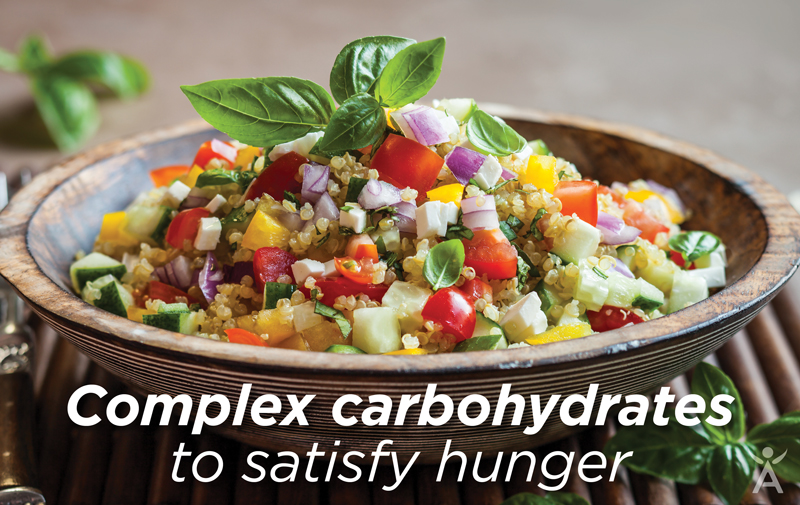It was once taken as fact by bodybuilders and fitness competitors that to keep metabolism high and stay anabolic, you had to eat every three to four hours. Any deviation from this eating schedule would put one at risk of losing hard-earned muscle—every bodybuilder’s nightmare. But with the rise of intermittent fasting, traditional dietary philosophies for building muscle and burning fat have been turned on their heads. Both the science and anecdotal reports are beginning to show that intermittent fasting can help bodybuilders get shredded.*
Intermittent fasting is the practice of going without food for several hours or up to a few days. Isagenix has been promoting intermittent fasting in the form of Cleanse Days since the company was founded in 2002. During a Cleanse Day, energy intake is limited to just a few hundred calories, mainly coming from an antioxidant-rich, detox-promoting drink, Cleanse For Life®.
The benefits for completing a Cleanse Day include fat loss, improved brain health, cardiovascular health, and more (1-3). But because the idea of abstaining from food for a whole day runs against the traditional bodybuilding mentality, many fitness competitors that are new to Isagenix are hesitant to try Cleanse Days, even if benefits for fat loss are well supported.
This is the exact attitude that National-level NPC Masters Physique athlete Darryl Daniels had when he first joined Isagenix in February of 2014. “When I first learned about Cleanse Days for the purpose of improving the physique, I was very skeptical,” he says. “Some ideas in the fitness industry die hard. I had developed this fear that if I skipped even a single meal, I would sacrifice some of the muscle I’d worked so hard to build. No way was I going to do that!”
But as his Isagenix business began to grow, he and his wife talked it over and decided that if they were going to recommend cleansing to others, they better give it a try.
“After completing my first Cleanse Day I felt drained and thought to myself, ‘What did I just do?’ But in the morning I woke up and walked into the bathroom, looked in the mirror, and screamed for my wife to come in. My midsection was so tight I couldn’t believe it! I was shredded, and I felt great. I had that feeling you want to have when you come into a show.”*
Daniels is not the first to discover the power of Cleanse Days as ‘shred days’. Studies have shown that intermittent fasting is just as effective for fat loss as typical calorie restriction (4, 5), and may be even better than calorie restriction when it comes to maintaining muscle during dieting (5).
Evidence is accumulating that finds during a day of intermittent fasting (or a Cleanse Day), the body attempts to conserve muscle and increase the use of fat as fuel by increasing growth hormone. Over a two-day period of intermittent fasting (back-to-back Cleanse Days), some may experience up to a five-fold increase of growth hormone (6). This is great news for bodybuilders looking to hang on to muscle while burning fat.*
By incorporating an Isagenix Cleanse Day 
Although he attributes the change in his body to the Cleanse Days, he recognises the importance of his modified Shake Days in helping maximise muscle gain. “Isagenix Shake and Cleanse Days are really the ideal system,” says Daniels.
The research supports his approach. When it comes to incorporating intermittent fasting (Cleanse Days) as part of a dietary strategy for losing fat and building muscle, ensuring intense strength training workouts and high nutritional quality of the meals consumed on non-fasting days is critical. Cleanse Days can be thought of as ‘shredding days’, and Shake Days can be thought of as ‘building days’.
On Shake Days, there is an optimal amount, type, and distribution of protein that can help mitigate muscle loss during calorie deficit (7, 8). Protein should be consumed at about 1 gram per pound of body weight each day, with as much as possible coming from high-quality whey and milk protein. In addition, protein should be distributed at 20 to 40 grams in each meal, four to five times per day. Fewer protein-rich meals during Shake Days may not allow for maximal muscle gain, and more protein-rich meals will actually blunt the anabolic response. This is because it takes a few hours for protein to fully digest and for the system to reset so that muscle building pathways can be fully activated again (9).
Darryl chose to do his intense lifting on Shake Days for building—when his body could make the most use of the fuel and high-quality protein he was feeding it—and his Cleanse Day on his rest days for shredding—when fat loss and recovery could best occur.
“Because of the way I structured my exercise routine around my Shake and Cleanse Days, my workouts never suffered. In fact, my post-Cleanse Day gym sessions were incredible. The day after cleansing I would wake up and have an IsaLean® Pro Shake and Ionix® Supreme followed by a big bowl of oatmeal. Then I would hit the gym a few hours later. I felt like my body was producing energy better and giving me a pump that would last longer. I also felt an improvement in mental clarity. This is a huge component of training that I don’t think people give enough credit to.”
When it comes to getting that tight shredded physique wanted by fitness competitors and the general public alike, Cleanse Days combined with high-protein Shake Days make it easy. Not only is the science behind this combination solid, but also perhaps most importantly, it’s easy to stick to. Many people have trouble controlling calorie intake and size of meals every single day, and doing one Cleanse Day each week allows them to reduce weekly calories with less effort and discomfort. The most effective weight-loss plan is one that can be maintained indefinitely, becoming a lifestyle.
“The change in my body between the show in 2013 and the show in 2014 was definitely a result of incorporating a weekly Cleanse Day. I experienced an improvement in my gym performance, energy, mental clarity, and the way I leaned out through my training period. I was blown away.”
For Daniels and others like him, Cleanse Days have become part of a bulletproof plan for not only obtaining their ideal body, but also keeping it.
*Disclaimer: The use of Cleanse Days as ‘Shred Days’ is not a normal protocol for bodybuilders. Results shown here are not typical; they are of a single athlete who is extremely conditioned.
References
- Gozansky et al. Intermittent fasting reduces abdominal obesity and improves cognitive function in obese adults. Obesity Week, 2013; Abstract P-537.
- Mattson MP, Wan R. Beneficial effects of intermittent fasting and caloric restriction on the cardiovascular and cerebrovascular systems. J Nutr Biochem 2005;16:129-37.
- Varady KA, Hellerstein MK. Alternate-day fasting and chronic disease prevention: a review of human and animal trials. Am J Clin Nutr 2007;86:7-13.
- Harvie MN, Pegington M, Mattson MP, Frystyk J, Dillon B, Evans G, Cuzick J, Jebb SA, Martin B, Cutler RG, Son TG, Maudsley S, Carlson OD, Egan JM, Flyvbjerg A, Howell A. (2011). The effects of intermittent or continuous energy restriction on weight loss and metabolic disease risk markers: a randomised trial in young overweight women. Int J Obesity, 35, 714-727.
- Varady KA. Intermittent versus daily calorie restriction: which diet regimen is more effective for weight loss? Obes Rev. 2011 Jul;12(7):e593-601. doi: 10.1111/j.1467-789X.2011.00873.x. Epub 2011 Mar 17.
- Hartman ML et al. Augmented growth hormone (GH) secretory burst frequency and amplitude mediate enhanced GH secretion during a two-day fast in normal men. J Clin Endocrinol Metab. 1992 Apr;74(4):757-65.
- Areta JL et al. Timing and distribution of protein ingestion during prolonged recovery from resistance exercise alters myofibrillar protein synthesis. J Physiol. 2013 May 1;591(Pt 9):2319-31. doi: 10.1113/jphysiol.2012.244897. Epub 2013 Mar 4.
- Helms ER1, Zinn C, Rowlands DS, Brown SR. A systematic review of dietary protein during caloric restriction in resistance trained lean athletes: a case for higher intakes. Int J Sport Nutr Exerc Metab. 2014 Apr;24(2):127-38. doi: 10.1123/ijsnem.2013-0054. Epub 2013 Oct 2.
- Witard OC et al. Myofibrillar muscle protein synthesis rates subsequent to a meal in response to increasing doses of whey protein at rest and after resistance exercise. Am J Clin Nutr. 2014 Jan;99(1):86-95. doi: 10.3945/ajcn.112.055517. Epub 2013 Nov 20.






